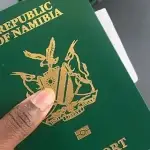
H1 2024: Nigeria’s Vehicle Imports Drops By 60% Due To Naira Volatility, High Customs Duties

The importation of vehicles into Nigeria dropped by 60 per cent in the first half of 2024, primarily due to high exchange rates and increased import duties. Data showed that only 10,991 vehicles were imported from January to June 2024, down from 28,024 during the same period in 2023.
Importers and clearing agents attribute this decline to the instability in foreign exchange rates and the imposition of hefty duties on used vehicles. Currently, the exchange rate for clearing imported goods is around N1599.392 per dollar, today’s official rate.
The Port and Terminal Multiservice Limited (PTML), which handles a significant portion of vehicle imports, reported a drop from 45,000 units in early 2023 to 18,000 in 2024. The high costs of clearing vehicles have made it difficult for ordinary Nigerians to afford them.
Industry experts warn that the situation is dire. Many clearing agents have reportedly lost their jobs due to reduced port activity. Some importers have turned to neighbouring countries for favourable exchange rates, diverting cargo away from Nigerian ports.
Metche Nnadiekwe, President General of the United Berger Motor Dealers Association, expressed concern that the harsh economic environment could push some individuals toward illegal activities out of desperation. He called on the government to address the high exchange rates and import duties.
The former acting president of the Association of Nigerian Licensed Customs Agents, Dr Kayode Farinto, emphasised the need for a stable and predictable exchange rate to help restore confidence in the importation process. He noted that rate fluctuations make it nearly impossible for businesses to plan effectively.
West Africa Weekly recalls that the Central Bank of Nigeria (CBN) issued a directive on February 26, 2024, requiring the Nigeria Customs Service (NCS) to use the foreign exchange closing rate on the day Form M is submitted for clearing goods and assessing import duties. This measure aimed to reduce volatility and was implemented shortly after the Labour Party presidential candidate, Peter Obi, recommended it on social media.
The NCS has, however, been criticised for disregarding this directive, using a higher exchange rate for import duty and clearance of goods. This combination of high costs and economic instability has continued to hinder Nigeria’s vehicle imports, affecting not just the automotive sector but the broader economy as well.
Read More:
- Refinery Saga: Fuel Imports from Malta to Nigeria Rise to $2.25 Billion in 2023
- Namibia To Implement Visa Restrictions On UK, US, Canada, Other Western Countries April 2025
About The Author
Related Articles
Tinubu Government Delays Release of Signed Tax Acts to the Public
Four days after President Bola Tinubu announced the signing of four tax...
ByMayowa DurosinmiJune 30, 2025As Tinubu Urges Africa-Caribbean Unity in Saint Lucia, Over 272 Nigerians Killed in June Alone
While Nigerians deal with deadly violence, worsening hunger, and mass flooding, President...
ByWest Africa WeeklyJune 30, 2025You Can’t Tax a Dead Economy: Nigeria Is Suffocating Under Its Own Policies
As Nigeria’s Central Bank clings to its benchmark interest rate of 27.5...
ByWest Africa WeeklyJune 30, 2025“Wike is Not a Blessing to Us, He’s a Disaster” — Workers Protest in Nigeria’s Capital Over Unpaid Wages, Poor Working Conditions
Staff members of the Federal Capital Territory Administration (FCTA) in Abuja barricaded...
ByOluwasegun SanusiJune 30, 2025











